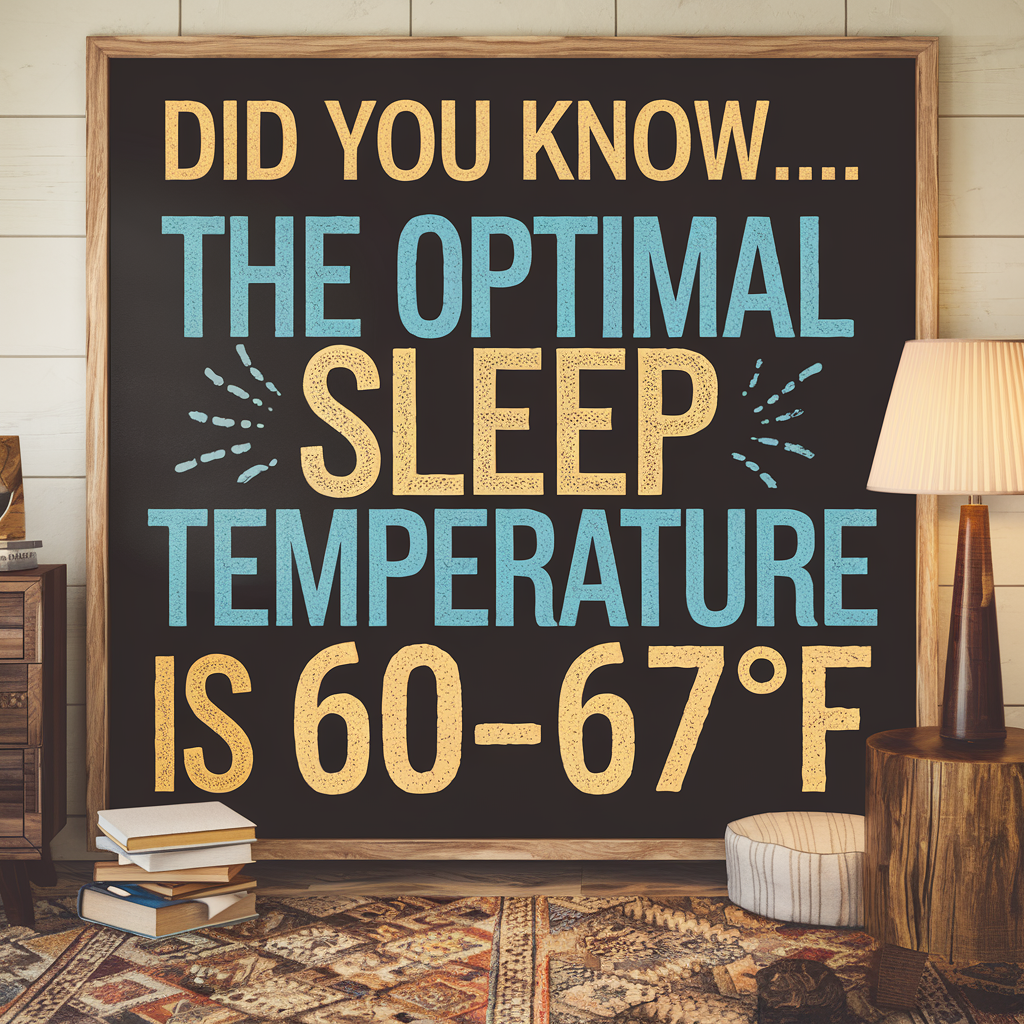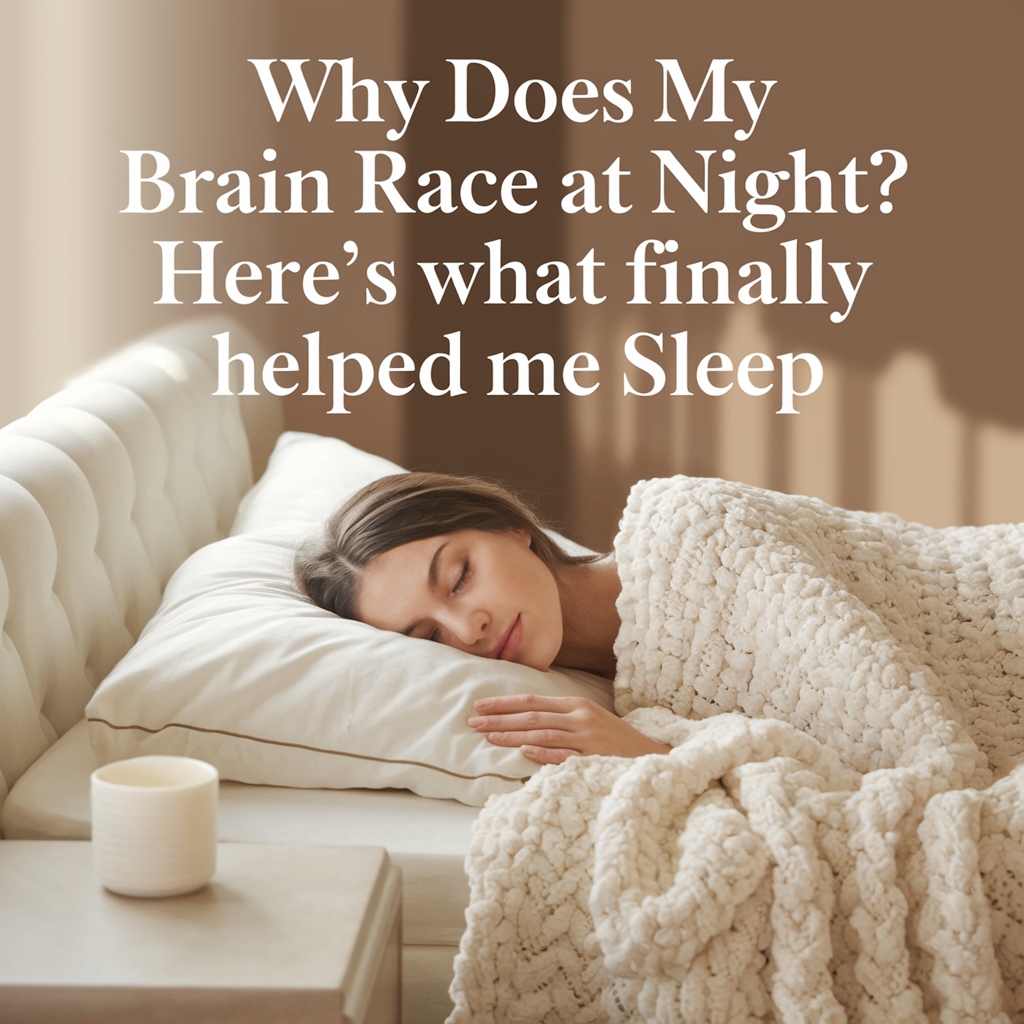
Why Is My Brain So Loud at Bedtime?
If your brain flips on like a light switch the second your head hits the pillow, trust me—you’re not alone. I’ve been there. Some nights, my mind would play out every conversation I had that day, plan tomorrow’s to-do list, relive embarrassing moments from ten years ago, and remind me I forgot to take the trash out—all before midnight.
Common “Loud Brain” Thoughts at Night:
- Did I pay that bill?
- What did they really mean by that text?
- I should eat better… starting tomorrow.
- What if I never get enough sleep again?
- Is that the dog snoring or a home intruder?
Why It Happens:
- Mental overstimulation during the day (constant screen time, caffeine, multitasking).
- Zero wind-down time before bed.
- Unprocessed stress and emotions that show up when things finally get quiet.
The silence of night acts like a spotlight—and suddenly, your brain’s putting on a full production.
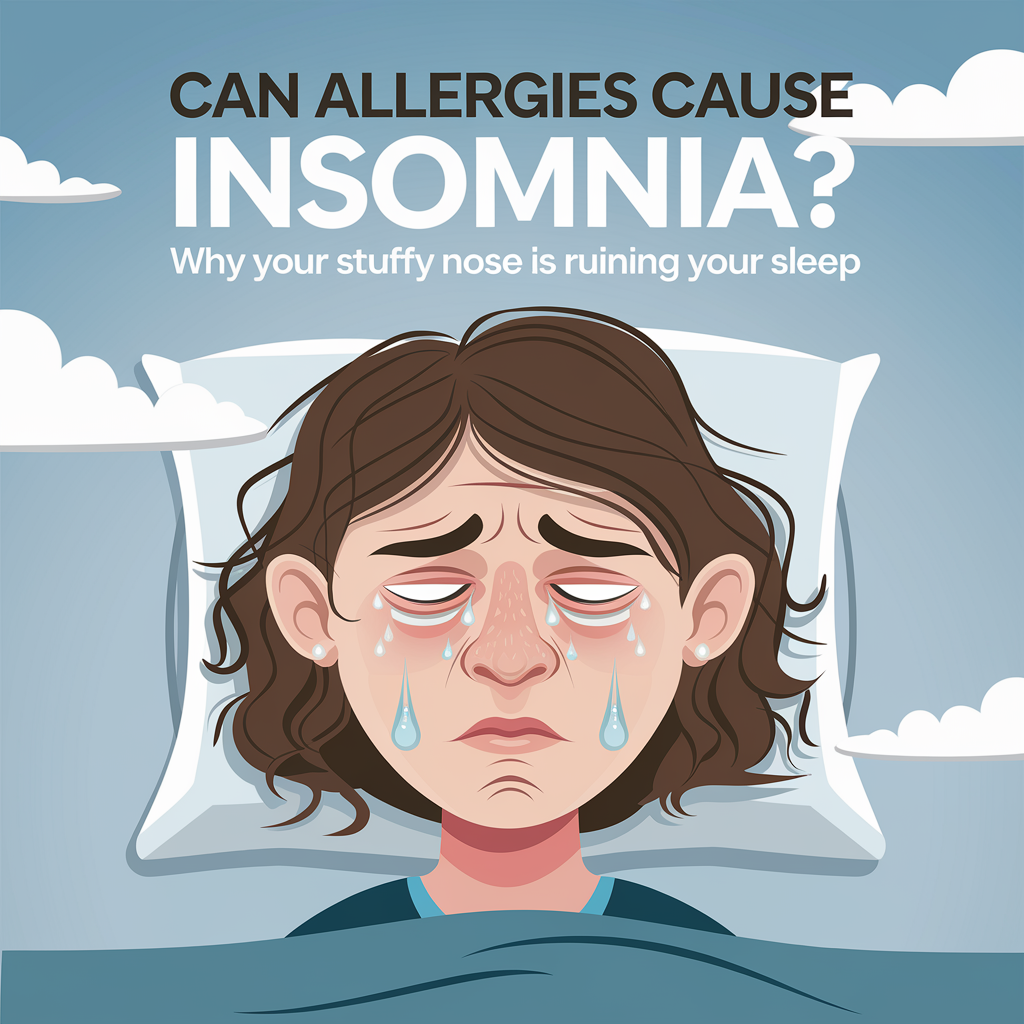
What Are Racing Thoughts and Why Do They Show Up at Night?
When people say they have “racing thoughts,” they’re talking about a rapid-fire stream of worries, reminders, ideas, or even totally random thoughts that won’t stop. And bedtime is their favorite time to show up. Why? Because it’s the first time all day your brain isn’t distracted.
Who’s More Likely to Experience This?
- People with anxiety (yep, me)
- Overthinkers (also me)
- Anyone with poor sleep habits or inconsistent routines
- People going through emotional stress, grief, or big life changes
One thing that helped me personally? Trying this 12-minute fix for insomnia that taught my brain how to slow down. It’s simple, fast, and honestly gave me hope when I thought I’d never sleep normally again.
Up next, we’ll get into what you can do about it—without relying on sleeping pills or expensive gadgets.
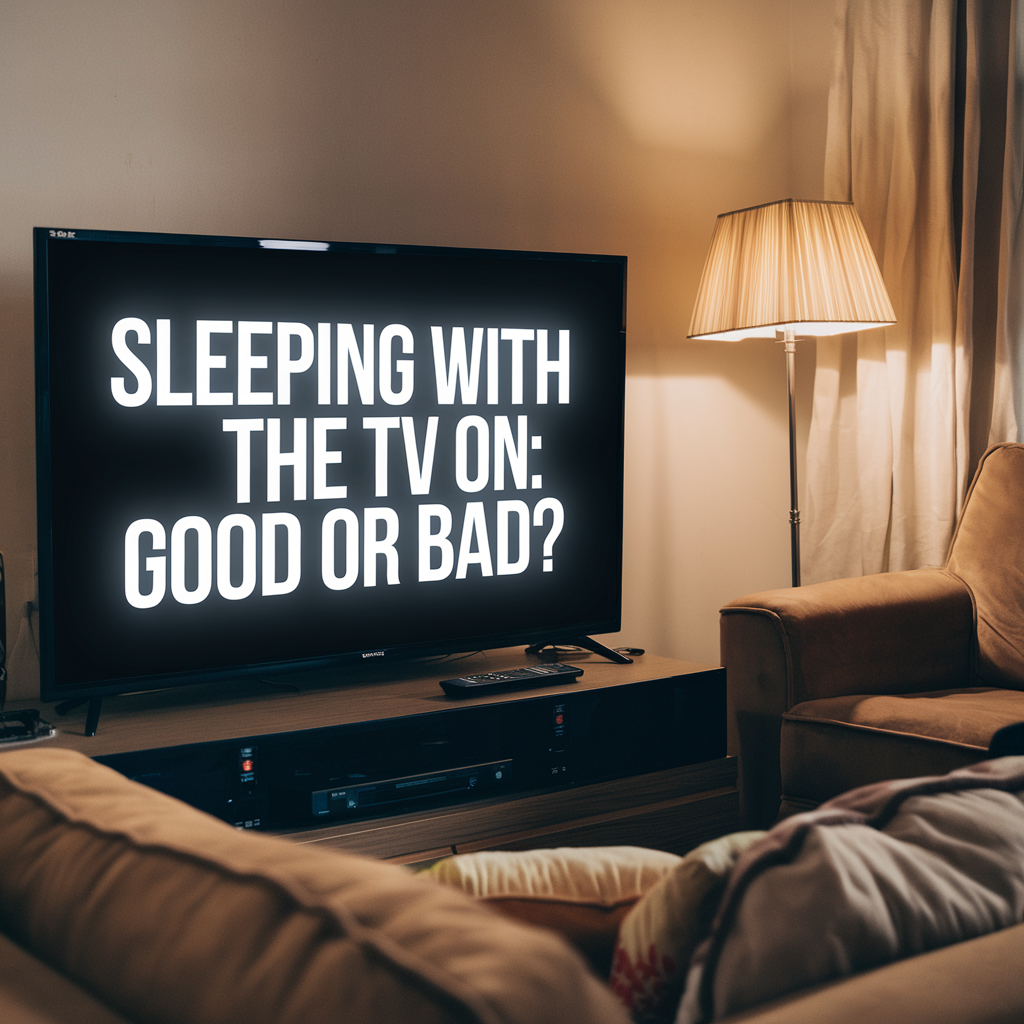
What Triggers the Brain to Race at Night?
The truth is, your brain isn’t trying to ruin your night—it’s actually doing its job. It’s just doing it at the worst possible time. At night, when everything else winds down, your brain finally gets space to start sorting, processing, and problem-solving. That’s when the mental traffic jam begins.
Common triggers that kick your brain into overdrive at bedtime:
- Unresolved stress from work, relationships, or finances
- Over-caffeination, especially after 2–3 p.m.
- Screen time right before bed (hello, blue light)
- Lack of routine or consistent sleep schedule
- Lying down too early and expecting to fall asleep right away
If you’ve also been dealing with allergies, believe it or not, they might be part of the problem. A stuffy nose or sinus pressure can lead to poor sleep, and poor sleep leads to more mental chaos. I learned that firsthand when I wrote this piece on how allergies can cause insomnia—worth checking out if you’ve been waking up congested or with a dry mouth.
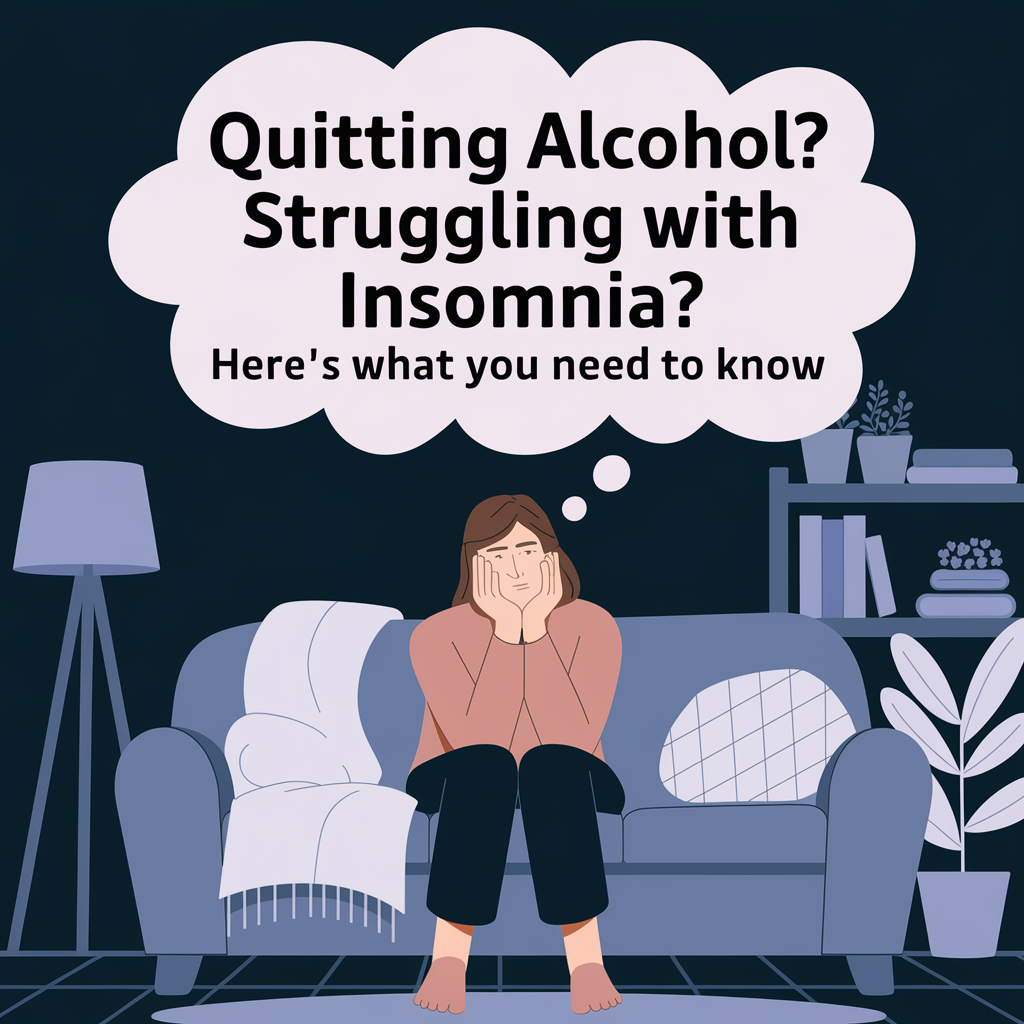
How to Calm a Busy Mind Before Bed
I’ve tried it all: melatonin, warm milk, meditating with ocean sounds, even counting backwards from 300 by threes. Some things helped, others… not so much. But over time, I figured out a few consistent go-to strategies that actually make a difference.
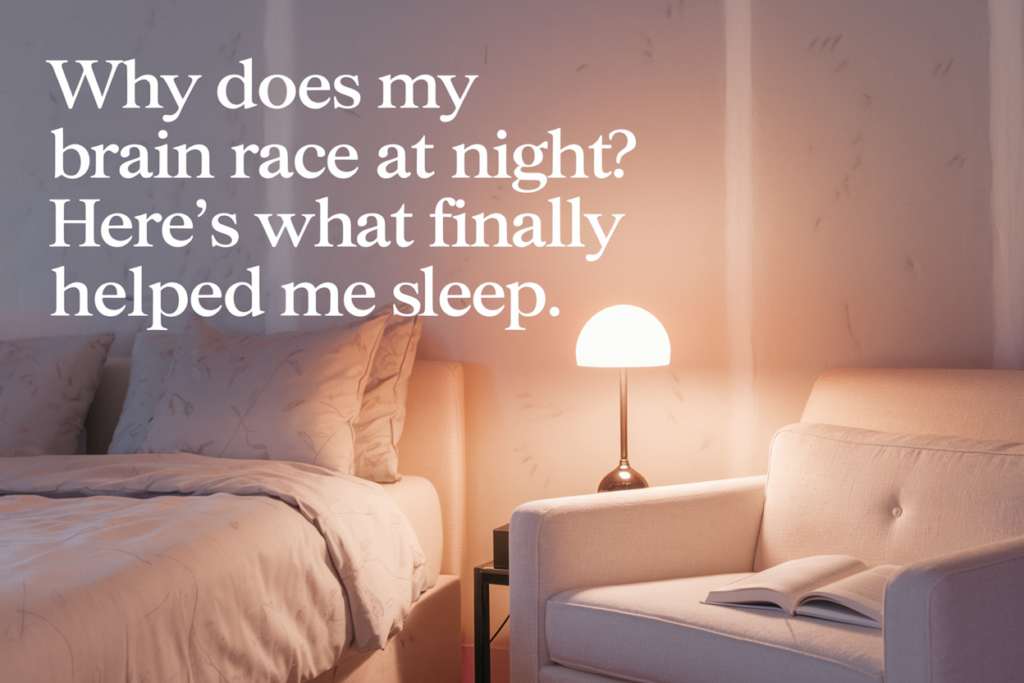
Here’s what works for calming my mind before bed:
- Create a wind-down ritual – For me, that means a warm shower, dim lighting, and reading a physical book (not my phone).
- Jot it down – If something’s bugging me or I keep remembering random to-dos, I write it all down in a notebook by my bed.
- Deep breathing – I use the 4-7-8 technique: inhale 4 seconds, hold 7, exhale 8. Works wonders.
- No screens 1 hour before bed – I know, easier said than done. But the nights I actually follow this rule? Way better sleep.
Also, if you’re curious how your actual sleep habits are affecting you, check out this look at how much sleep studies cost. Sometimes, getting answers from the pros is the best move forward.
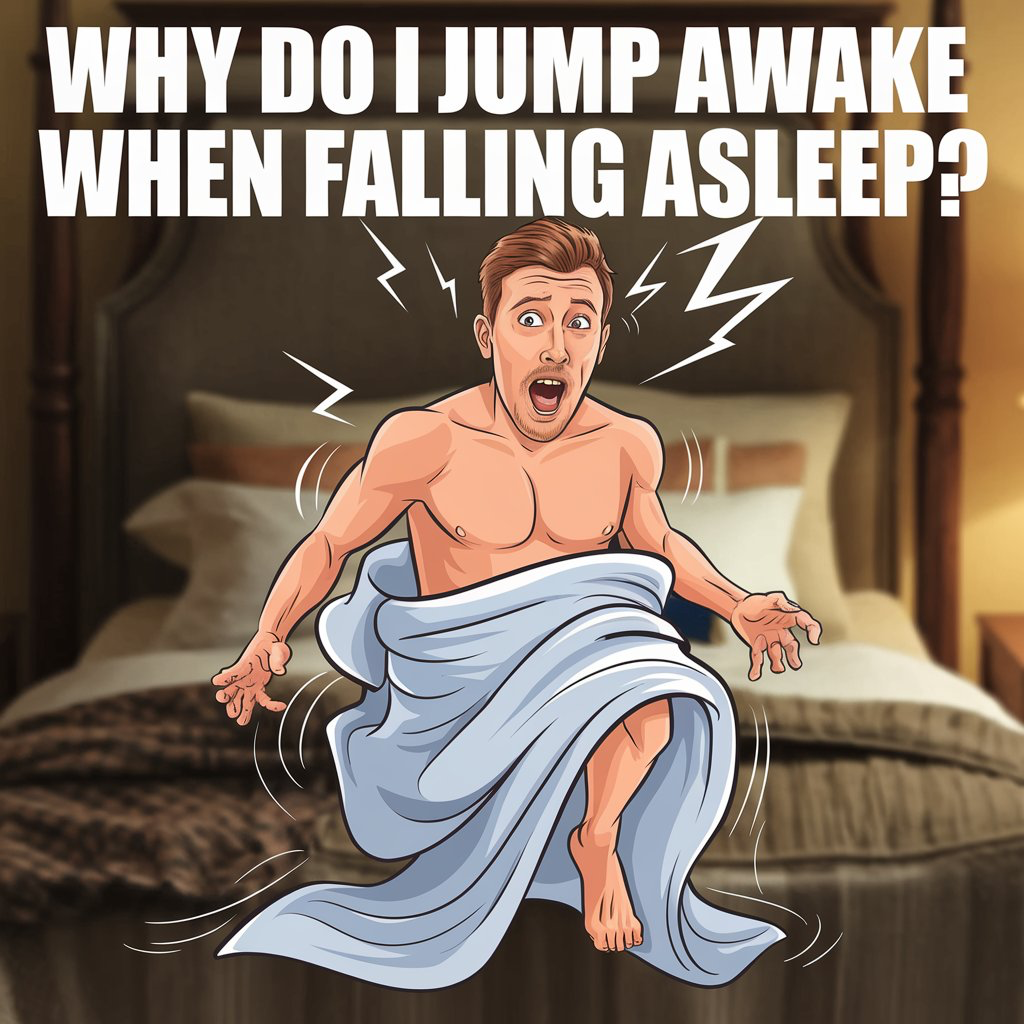
Nighttime Anxiety: Why It Hits Hardest When You’re Trying to Sleep
Isn’t it wild how your brain waits until the lights are off and your head hits the pillow to remind you of that awkward thing you said in 2014? Nighttime anxiety is no joke, and for a lot of us, it’s the main reason our brains won’t settle down.
Why does it hit so hard at night? Simple: no distractions. The stillness gives anxiety a stage, and it steps up like it’s headlining a show.
Here’s what helps me ease that nighttime spiral:
- Recognize it’s normal – You’re not alone, and your thoughts aren’t as scary as they feel.
- Focus on physical comfort – Weighted blankets, white noise, or even adjusting the room temp can help ground you.
- Have a go-to calming phrase – Something like “I’m safe and it’s time to rest” repeated silently works surprisingly well.
If your anxiety is tied to something deeper like adrenal fatigue, I really recommend reading up on why adrenal fatigue causes insomnia—that connection helped me understand my body better and actually find relief.
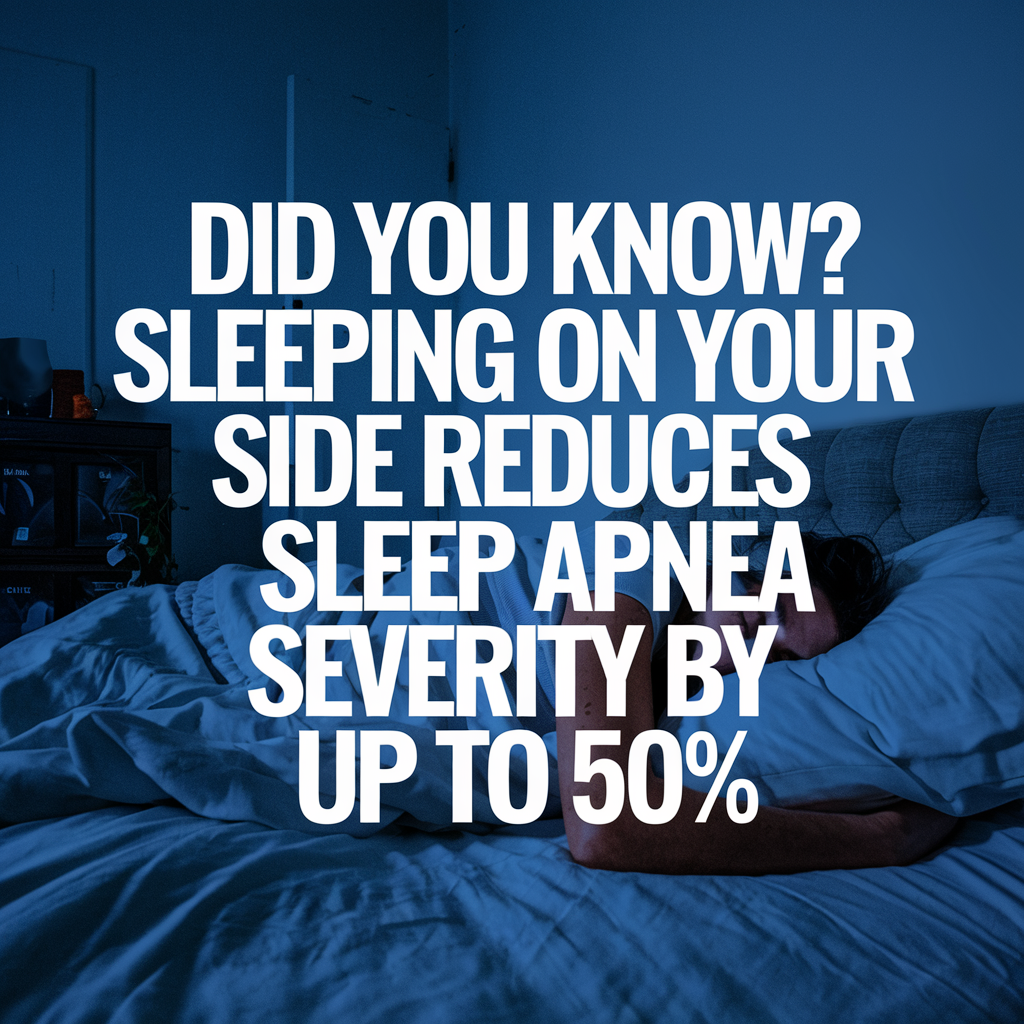
Should You Try a Sleep Aid or Natural Supplement?
I’ve been down that rabbit hole of sleep aids—everything from over-the-counter options to melatonin gummies. Some helped, others left me groggy and worse off the next day. Here’s my honest take:
If you’re curious about natural options, look for:
- Magnesium glycinate – super calming without the next-day fog.
- L-theanine – pairs well with low-dose melatonin for a peaceful transition to sleep.
- Herbal teas – chamomile, lemon balm, and valerian root are my go-tos.
But also, don’t ignore simple habit shifts. Honestly, making even a few tweaks to my evening routine did more for my sleep than any supplement ever did. And if you’re still struggling, take a peek at this 12-minute insomnia fix—it’s simple but shockingly effective.
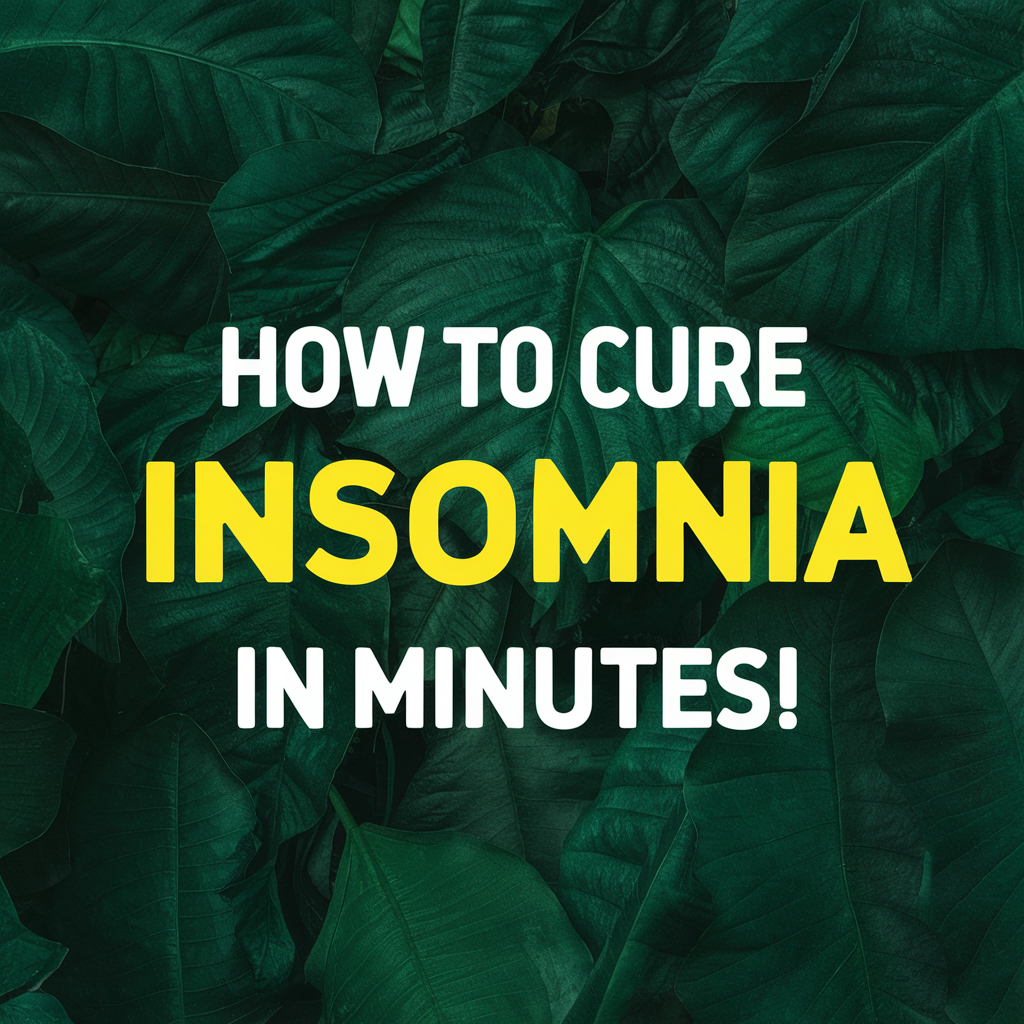
Hidden Habits That Might Be Wrecking Your Sleep
You’d be surprised how many little things mess with sleep without you realizing it. For me, the biggest offender was scrolling my phone in bed. It felt harmless… until I started noticing how wired I was every night.
Other common sleep wreckers I’ve personally caught myself doing:
- Caffeine after 2 p.m. – Even when I swore it “didn’t affect me,” it totally did.
- Late-night snacking – Heavy or sugary foods gave me weird dreams and restless legs.
- Alcohol as a sleep aid – It knocks you out fast but wrecks sleep quality later in the night.
I also learned the hard way that even sleeping with the TV on can mess with deep sleep. I used to think the background noise helped, but after reading this take on whether sleeping with the TV on is good or bad, I changed my habits—and wow, my dreams got less chaotic and my mornings felt way better.
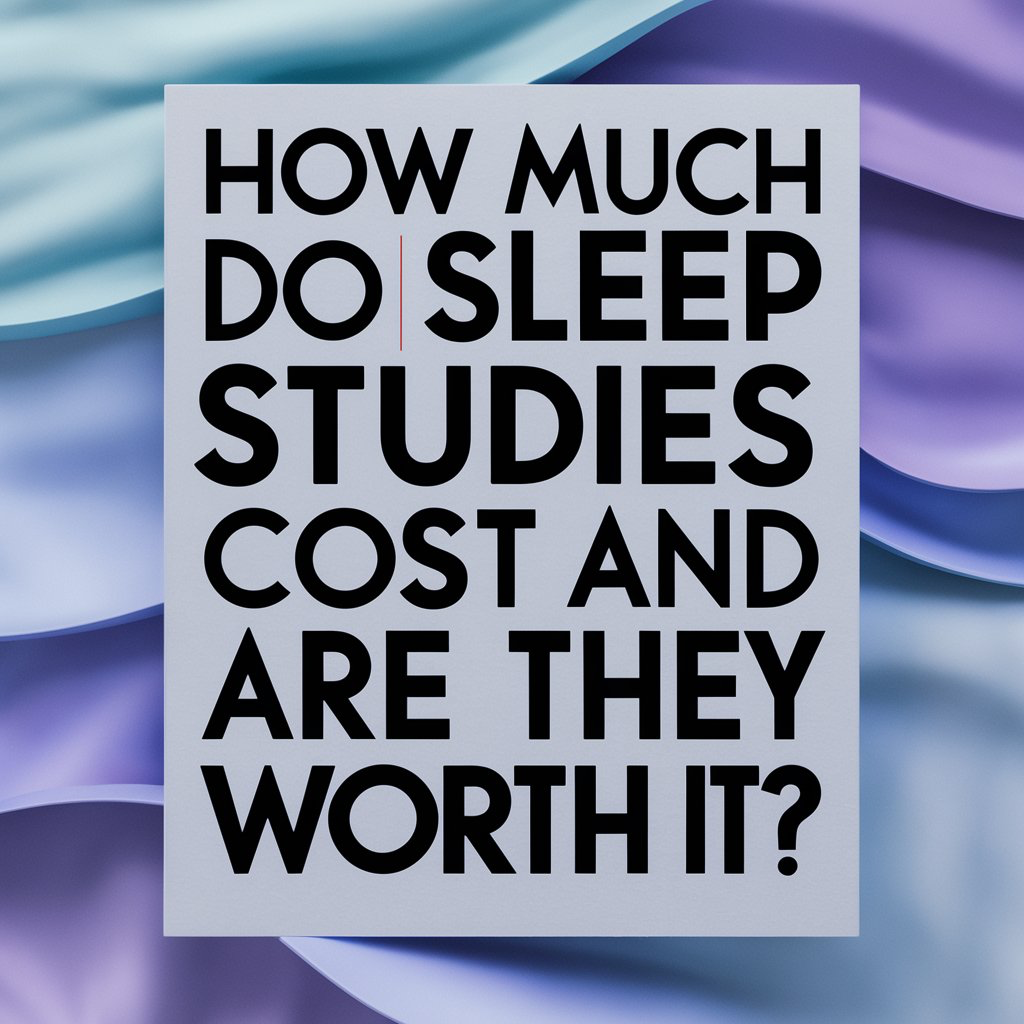
When It’s Time to Talk to Your Doctor About Insomnia
There’s a point where tossing and turning becomes a pattern—and if you’re hitting that wall regularly, it might be time to chat with a pro. I put it off way too long because I thought insomnia was just “something I had to deal with.”
But here’s when I knew I needed help:
- Lying awake for hours more nights than not
- Feeling like a zombie during the day
- Anxiety spiking just thinking about bedtime
Sleep is essential—like food, water, or air. And if something’s off, your doctor might help rule out things like sleep apnea (which I didn’t know I had until I saw this breakdown on how sleep apnea can kill you if ignored—yep, scary stuff but important to know).
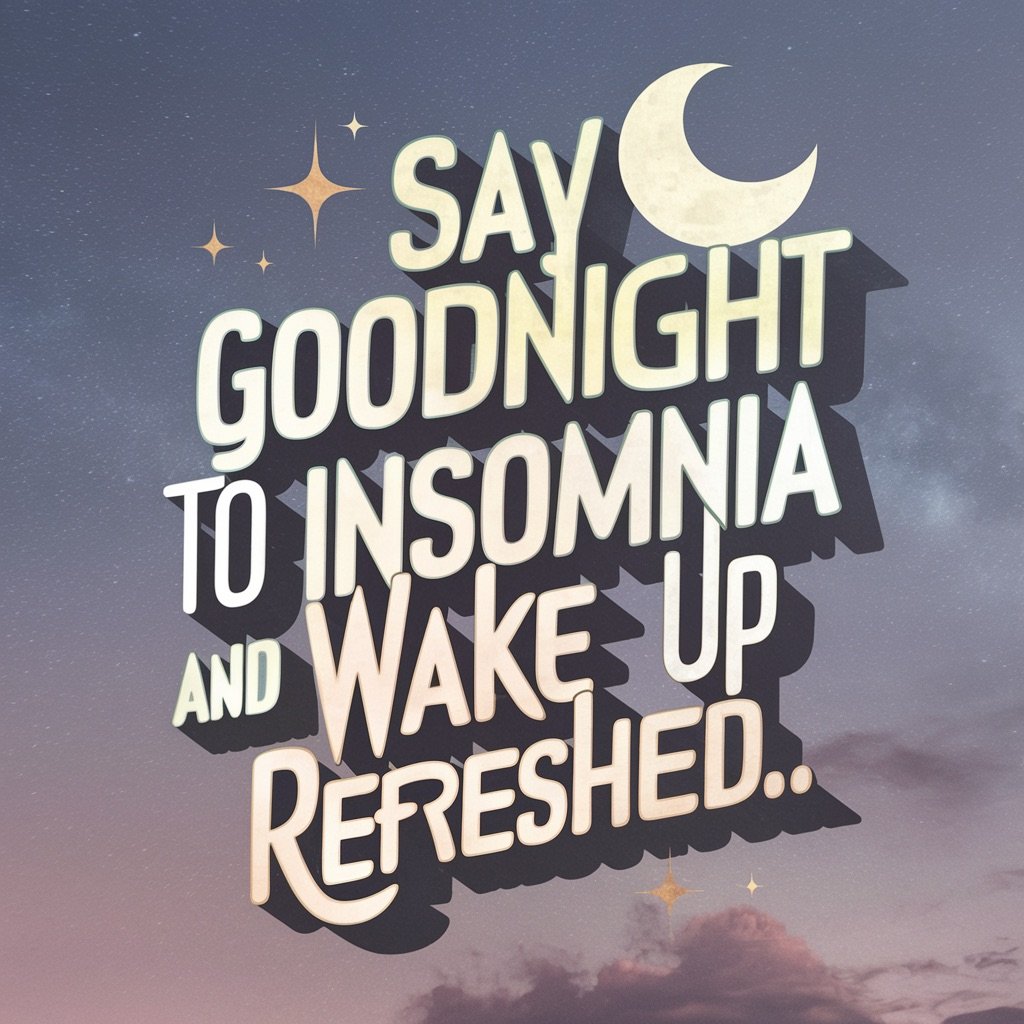
Natural Remedies That Actually Help You Fall Asleep
I’m all for modern medicine when it’s needed, but I’ll be honest—natural remedies are what turned things around for me. They helped me reset my sleep cycle without harsh side effects. Here are a few that worked wonders:
1. Magnesium before bed
I started taking a small dose of magnesium glycinate, and it relaxed my body like nothing else. It was subtle, but powerful—less tossing, more drifting.
2. Herbal teas
Chamomile and valerian root teas became part of my nightly wind-down ritual. It wasn’t just the herbs—it was the whole process of slowing down and sipping something warm.
3. Breathing exercises
Sometimes, the fix isn’t something you take—it’s something you do. Deep, slow breathing while lying in bed did more than I expected. I also paired it with this 12-minute insomnia fix that walks you through calming your brain and body in real time.
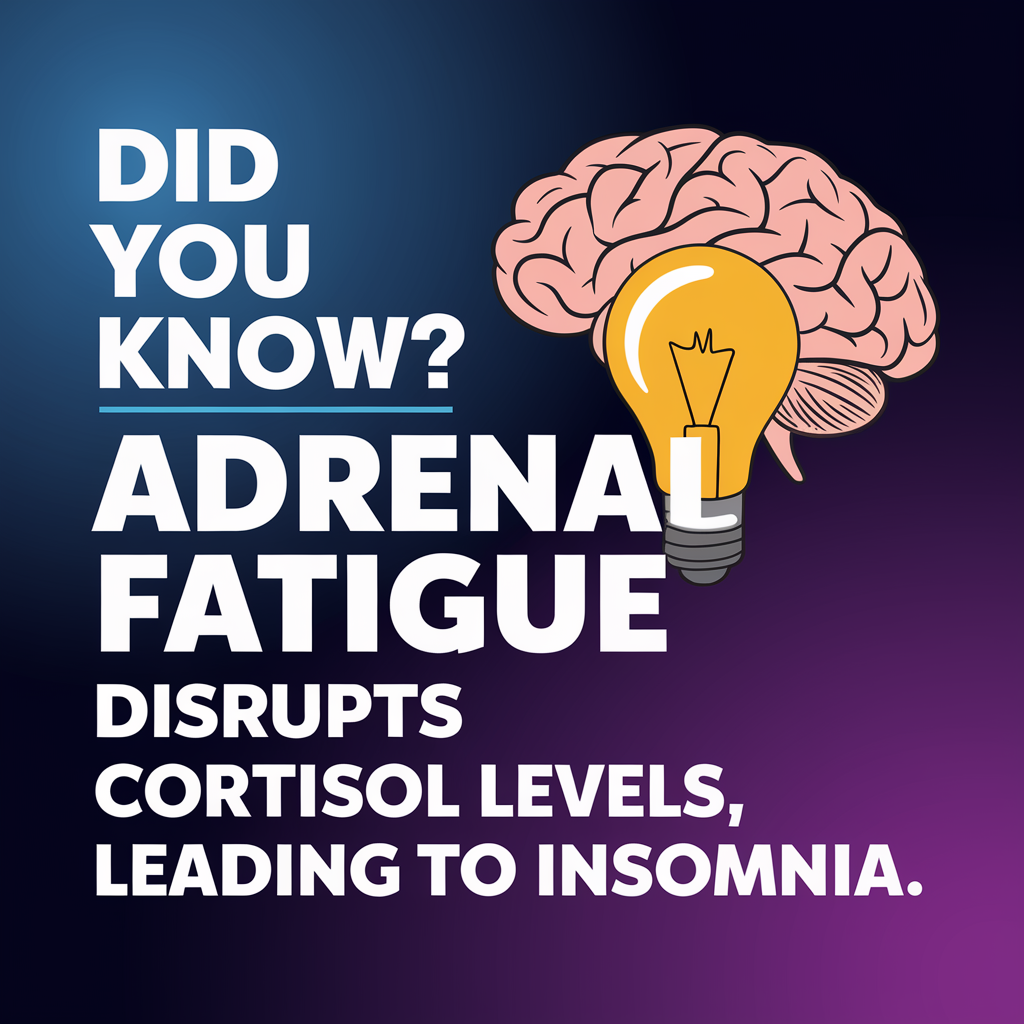
Fixing Your Sleep Environment for Good
Your room should feel like a sleep sanctuary—not a place that wires you up or distracts you. Once I treated my bedroom like a dedicated rest zone, things shifted fast.
Here’s what made a difference for me:
- Pitch-black curtains – Even tiny streetlights sneaking through were waking me up.
- Cooler temps – Around 65°F worked best for me.
- White noise – A simple fan or sound machine drowned out background noise and made falling asleep easier.
And let’s not forget about the position you sleep in. I learned through trial and error that some positions can actually worsen issues like snoring or sleep apnea. This deep dive into the best sleep position for managing sleep apnea helped me finally figure out what was working against me—and what to change.

How Food and Drinks Mess With Your Sleep
This one was hard for me to accept because I love a good late-night snack—but what you eat and drink (and when you do it) can totally wreck your sleep. I used to sip a soda during movie nights or snack on something salty, not realizing it was throwing my body off for hours.
Here’s what I had to cut way back on:
1. Caffeine after 2 p.m.
Even a small cup of coffee in the afternoon messed with me. The alertness lingered into bedtime way more than I realized.
2. Alcohol
It feels like it helps you sleep—but really, it just sedates you for a few hours and then disrupts the second half of your sleep. This article on alcohol withdrawal insomnia broke it down in a way that finally made sense.
3. Heavy meals before bed
Big dinners used to leave me tossing and turning. Now I keep things light and eat earlier. My stomach and my sleep both thank me.

Is Technology Stealing Your Rest?
Let me just say it—my phone used to be the last thing I saw before bed and the first thing I grabbed in the morning. Sound familiar? Blue light and constant stimulation were a huge part of why I couldn’t fall asleep or stay asleep.
I started putting my phone down an hour before bed. No scrolling, no late-night emails—just unplugging. And honestly, it helped more than I thought it would.
Another thing I looked into was whether having the TV on at night was helping or hurting. This deep dive on sleeping with the TV on helped me figure out how noise, light, and screen time were keeping my brain way too busy to fully shut down.
As an Amazon Associate we earn from qualifying purchases through some links in our articles.
